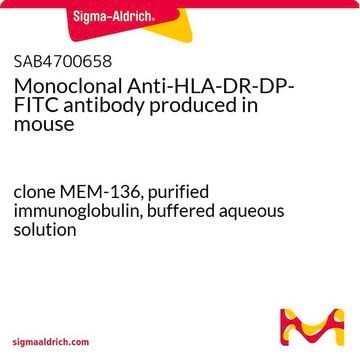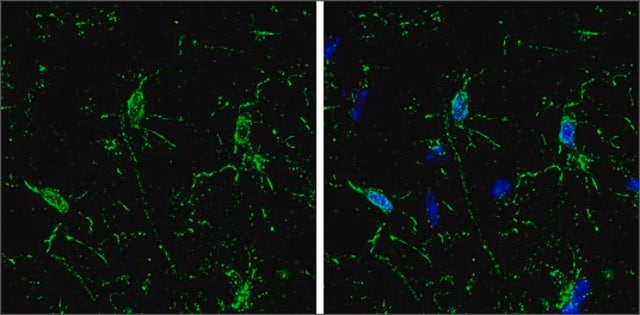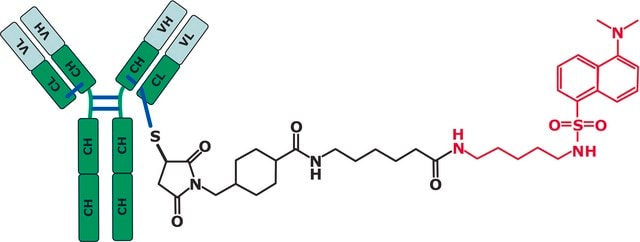SAB5600060
Anti-Glial Fibrillary Acidic Protein Antibody
monoclonal, RM246
Sinónimos:
Glial fibrillary acidic protein
About This Item
Productos recomendados
Nombre del producto
Anti-GFAP antibody, Rabbit monoclonal, recombinant, expressed in HEK 293 cells, clone RM246, purified immunoglobulin
recombinant
expressed in HEK 293 cells
Quality Level
antibody form
purified immunoglobulin
antibody product type
primary antibodies
clone
RM246, monoclonal
recombinant monoclonal
form
buffered aqueous glycerol solution
species reactivity
human
technique(s)
immunoblotting: 1:1000-1:3000
immunohistochemistry: 1:200-1:500
isotype
IgG
NCBI accession no.
UniProt accession no.
shipped in
wet ice
storage temp.
−20°C
target post-translational modification
unmodified
Gene Information
human ... GFAP(2670)
Specificity
Immunogen
Features and Benefits
Physical form
Disclaimer
¿No encuentra el producto adecuado?
Pruebe nuestro Herramienta de selección de productos.
Storage Class
10 - Combustible liquids
wgk_germany
WGK 2
flash_point_f
Not applicable
flash_point_c
Not applicable
Elija entre una de las versiones más recientes:
Certificados de análisis (COA)
¿No ve la versión correcta?
Si necesita una versión concreta, puede buscar un certificado específico por el número de lote.
¿Ya tiene este producto?
Encuentre la documentación para los productos que ha comprado recientemente en la Biblioteca de documentos.
Nuestro equipo de científicos tiene experiencia en todas las áreas de investigación: Ciencias de la vida, Ciencia de los materiales, Síntesis química, Cromatografía, Analítica y muchas otras.
Póngase en contacto con el Servicio técnico








